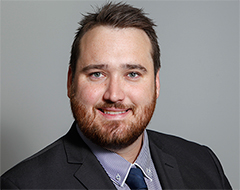 We often write in this column about the importance of people who are entering the property market doing their due diligence, including financial due diligence, not just legal due diligence before they hit the open home circuit.
We often write in this column about the importance of people who are entering the property market doing their due diligence, including financial due diligence, not just legal due diligence before they hit the open home circuit.
In addition to speaking with a mortgage broker to get a pre-approval in place, it is also important that you understand what state and federal policies are in place that might assist you getting into the market.
Unless you have been living under a rock, if you are reading this column you will be aware by now that Labor were successful in the recent federal election.
Prior to the election, Prime Minister Anthony Albanese announced policies that would be introduced if he was re-elected that will affect first home buyers.
Firstly, the Federal Government will enable some first buyers to enter the market with as little as a five per cent deposit.
Traditionally, to obtain a home loan from a bank most borrowers needed a deposit of at least 20 per cent to avoid loan mortgage insurance.
Loan mortgage insurance (LMI) is an insurance policy the bank takes out to cover itself in the event that a highly leveraged borrower defaults on their loan.
The lender passes that cost onto the borrower.
LMI’s controversial because it is prohibitively expensive (often exceeding $10,000 or $20,000), and does not benefit the borrower at all. It is an insurance policy wholly and solely for the benefit of the lender.
Previously, the Federal Government had in place a scheme where it would effectively act as a guarantor on the loan up to a limit of 15 per cent, meaning that if a first home buyer who met the eligibility criteria had a five per cent deposit, the government would notionally guarantee the balance to enable more people to enter the property market.
Previously the government scheme was only available to first home buyers who earnt less than $125,000 a year (singles) or $200,000 a year (couples). There were also limited places in what was known as the “First Home Buyers Guarantee” scheme.
Before the election Labor pledged to expand the scheme to all first home buyers and do away with the income test and cap on availability.
In essence, this means that far more people will be able to access the scheme if they wish to do so. The only real restriction the government proposes to impose on the expanded scheme is on the price of the home being acquired which will be capped relative to the city or region in which the home is located. For example, the house price limit to access the scheme in Sydney will be $1.5 million, in Melbourne it will be $950,000 and in Brisbane it will be $1 million.
Labor also proposed a policy to stimulate the construction of new homes. Labor’s plan is to spend $10 billion to assist in the construction of up to one hundred thousand new homes that would only be available to first home buyers entering the market.
Most of the $10 billion spend is to be farmed out to states and territories or other organisations who would then set about the actual construction of the homes.
Both policies, if affective, should enable greater ability for first home buyers to enter the market.

Daniel McKinnon
Since graduating with two degrees in Law and Commerce from the University of Wollongong, Daniel’s spent over ten years solving a wide range of legal problems for the people of Western Sydney.
